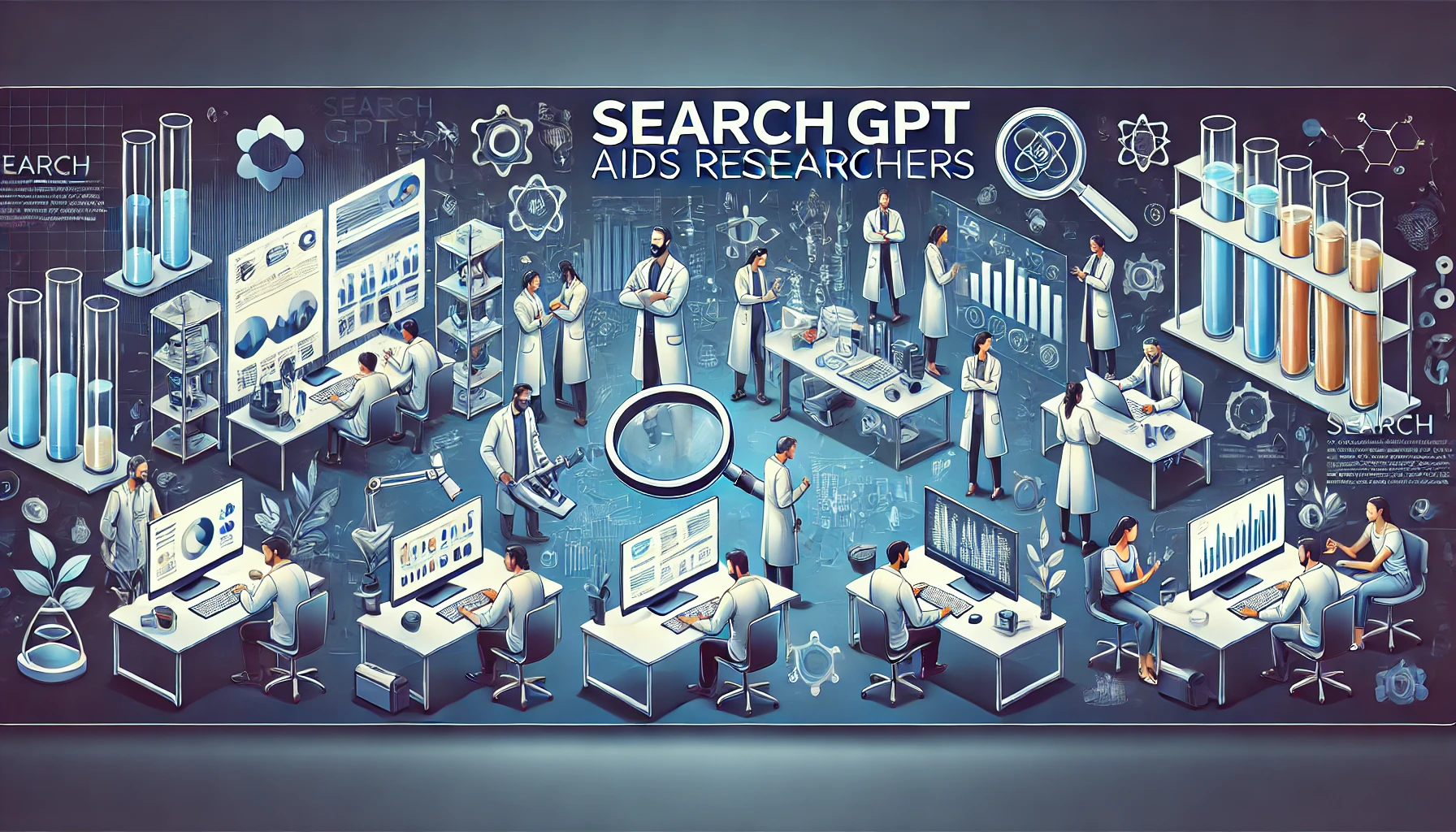How can SearchGPT aid researchers?
SearchGPT aid researchers: SearchGPT can be a powerful tool for researchers in various fields, offering numerous benefits to enhance their work processes and outcomes. Here are several ways in which SearchGPT can aid researchers:
- Efficient Information Retrieval
Literature Reviews:
- SearchGPT can quickly find and summarize relevant academic papers, articles, and other scholarly content, streamlining the literature review process.
- It can identify key themes, trends, and gaps in existing research, providing a comprehensive overview of the current state of knowledge.
Accurate Query Responses:
- Researchers can use SearchGPT to pose complex questions and receive precise and contextually relevant answers, saving time and effort in information gathering.
- It can help identify critical studies and sources that may not be immediately apparent through traditional search methods.
- Data Analysis and Interpretation
Data Summarization:
- SearchGPT can analyze large datasets and provide concise summaries of the findings, highlighting significant patterns, correlations, and anomalies.
- It can assist in interpreting complex data, making it easier for researchers to draw meaningful conclusions.
Statistical Support:
- The AI can suggest appropriate statistical methods and tools for analyzing specific types of data, ensuring robust and accurate analysis.
- It can generate preliminary statistical analyses and visualizations, aiding in the presentation of research findings.
- Writing and Editing Assistance
Drafting Research Papers:
- SearchGPT can help researchers draft sections of their papers, including introductions, literature reviews, methodologies, and discussions.
- It can provide suggestions for structuring content, improving clarity, and ensuring logical flow.
Grammar and Style Checks:
- The AI can review research documents for grammatical errors, stylistic issues, and adherence to specific formatting guidelines (e.g., APA, MLA).
- It can suggest improvements to enhance the readability and overall quality of the manuscript.
- Keeping Up-to-Date with Developments
Current Research Trends:
- SearchGPT can provide updates on the latest research developments, new publications, and emerging trends in a specific field.
- It can curate relevant news and academic articles, helping researchers stay informed about advancements and breakthroughs.
Alerting Services:
- Researchers can set up alerts for specific topics, authors, or journals, ensuring they receive timely notifications about new research that aligns with their interests.
- Collaborative Research
Facilitating Communication:
- SearchGPT can assist in drafting collaborative documents, emails, and proposals, improving communication and coordination among research team members.
- It can help organize virtual meetings and manage collaborative research projects by keeping track of tasks and deadlines.
Resource Sharing:
- The AI can suggest and share relevant resources, tools, and databases with research collaborators, promoting efficient and productive collaboration.
- Grant Writing and Funding
Grant Proposals:
- SearchGPT can aid in drafting compelling grant proposals by providing templates, guidelines, and examples.
- It can suggest relevant funding opportunities and tailor proposals to meet specific funding agency requirements.
Funding Sources:
- The AI can identify potential funding sources, including grants, fellowships, and scholarships, relevant to the researcher’s field of study.
- Enhancing Research Visibility
Publishing Strategies:
- SearchGPT can suggest suitable journals and conferences for submitting research papers, based on the researcher’s field and the study’s scope.
- It can provide tips for enhancing the visibility and impact of published work, such as optimizing keywords and promoting research on social media platforms.
Academic Networking:
- The AI can help researchers connect with peers, mentors, and experts in their field, fostering academic networking and collaboration opportunities.
- Ethical and Responsible Research
Ethical Guidelines:
- SearchGPT can provide information on ethical guidelines and best practices for conducting research, ensuring compliance with institutional and regulatory standards.
- It can assist in drafting informed consent forms and other ethical documentation required for research involving human participants.
Responsible Data Management:
- The AI can offer advice on responsible data management practices, including data storage, sharing, and protection, ensuring the integrity and security of research data.
Conclusion
SearchGPT offers a wide array of tools and capabilities that can significantly aid researchers in their work. From efficient information retrieval and data analysis to writing assistance, keeping up-to-date with developments, facilitating collaboration, aiding in grant writing, enhancing research visibility, and ensuring ethical and responsible research practices, SearchGPT can streamline and enhance various aspects of the research process. By integrating SearchGPT into their workflows, researchers can achieve greater efficiency, accuracy, and impact in their studies, advancing knowledge and innovation in their respective fields.




